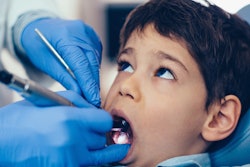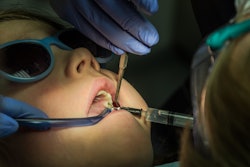
New strategies are needed to address oral health disparities in Medicare beneficiaries in nursing homes, according to a recent study in JAMA Open Network.
A group led by Dr. Steffany Chamut, MPH, of the Harvard School of Dental Medicine in Boston analyzed records of dental problems among Medicare beneficiaries living in nursing homes and found significant differences in the prevalence of dental problems across demographic and clinical groups.
"Targeted interventions addressing oral health disparities in this high-risk population are essential to improve overall health and well-being," the group wrote (JAMA Netw Open, September 12, 2023, Vol. 6:9, e2333367).
Older adults in the U.S. encounter significant barriers to maintaining good oral health, and disparities in disease prevalence and access to oral care are persistent challenges, according to the authors. Chamut and her team studied reports on approximately 2.4 million Medicare beneficiaries residing in U.S. Centers for Medicare and Medicaid Services-certified nursing homes in 2020.
According to the findings, non-Hispanic Black beneficiaries had 16% higher odds of having no natural teeth or tooth fragments and 5% higher odds of having cavities or broken natural teeth compared with white beneficiaries. Similarly, American Indian or Alaskan Native beneficiaries had 34% higher odds of having no natural teeth or tooth fragments, 20% higher odds of having cavities or broken natural teeth, and 45% higher odds of having inflamed or bleeding gums or loose teeth compared with white beneficiaries.
"This cross-sectional study’s findings highlight the considerable prevalence of dental problems among Medicare beneficiaries in nursing homes, revealing disparities across various demographic and clinical factors," the group wrote.
In an accompanying commentary on the research, Dr. Bruce Dye, of the University of Colorado School of Dental Medicine wrote that as U.S. residents age, rates of untreated oral diseases among older adults will remain high and that these oral health disparities will continue to exist. He echoed the study authors' call for implementing processes that can substantially improve access to dental care for this population.
"Incorporating a dental benefit into Medicare could be a mechanism to mitigate continuing and disproportionate challenges that most older Americans encounter with accessing dental care compared with medical care," he noted.



















